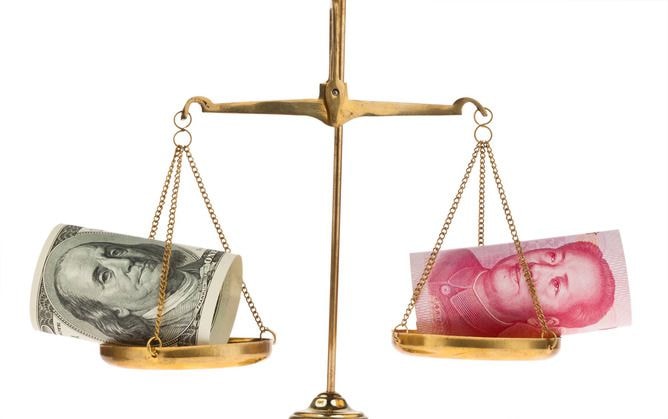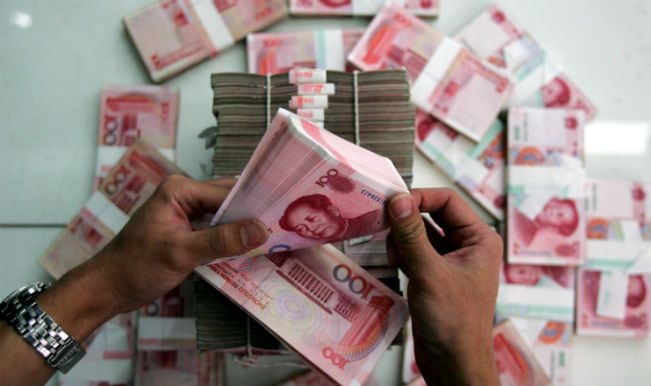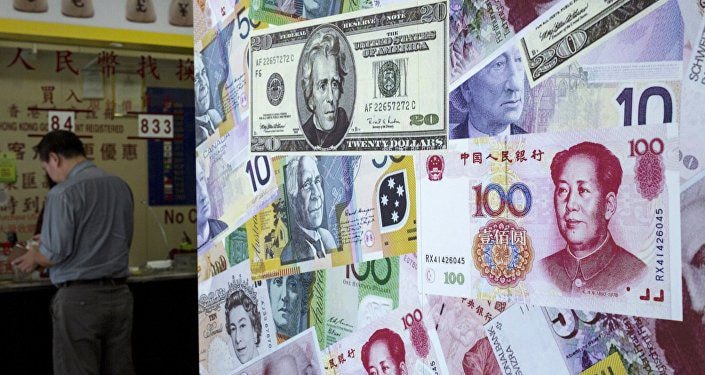China creates momentum for the yuan to enter the international currency basket
(Baonghean) - Three months after unexpectedly devaluing the Chinese Yuan (CNY), the People's Bank of China (PBOC) on November 2 increased the exchange rate of its domestic currency by the strongest level in a decade. Overcoming speculations about the possibility that the Chinese economy is worse than expected, experts still believe that China is showing efforts to switch to a more flexible exchange rate mechanism to "score points" before the International Monetary Fund (IMF) considers the proposal to include the Yuan in the international currency basket this November.
Ups and downs
Last weekend, the PBOC set the reference rate of the yuan at 6.3549 yuan per dollar, up 0.07% from the previous session. However, on November 2, the PBOC continued to increase the yuan by another 0.5% to 6.3154 yuan per dollar.
This is the strongest increase since July 2005, when China began to end its peg to the USD. Currently, China allows the yuan to trade on the domestic foreign exchange market within a +/-2% band around the reference exchange rate.
 |
| The yuan is strengthening against the dollar.Photo: Internet |
This recent exchange rate adjustment took place not long after China devalued the yuan to a record low in August. The erratic adjustment of the yuan has raised concerns that the country's economic situation is worse than expected. However, China immediately reassured that the yuan's increase is just a market-driven adjustment, helping the exchange rate more accurately reflect real supply and demand due to the sharp increase in the USD price in recent times.
Economists also believe that this could be a step in reforming China's exchange rate mechanism, allowing the market to play a larger role in determining the exchange rate, thereby gradually eliminating state intervention. If the record devaluation in August was most mentioned as China's goal to boost exports in a stagnant economy, then this increase is explained as a balance between the need for financial stability and promoting exports.
Prospects for inclusion in the international currency basket
“Market-based exchange rate” - that is what China is trying to prove in order to help the yuan pass the IMF’s “test” this November to become a currency in the international currency basket.
While considering whether the RMB is a freely usable currency, the IMF with 188 member countries will have to assess the independence of the PBOC in changing the RMB exchange rate. If the RMB is traded on a large scale, but is still subject to political influence - that is, the influence of the PBOC - it will make it difficult for investors to use this currency.
 |
| The CNY was traded at 6.3154 CNY/USD. Photo: Internet |
Before the IMF updated its basket of international reserves, China had received positive signals. According to some IMF officials, the possibility of the RMB passing this review is quite high as the RMB has significantly improved in the benchmark for use as an official reserve currency, bonds and in currency trading.
Meanwhile, like last time, the IMF said that the yuan has met the criteria of being widely used in exports of goods and services. Mr. Otaviano Canuto, Managing Director of the IMF's 11 regions, also appreciated China's recent market-oriented exchange rate easing moves, such as the issuance of yuan-denominated bonds in London.
 |
| Will the RMB become a currency in the international currency basket?Photo: Internet |
A statistic at the end of August also showed that the RMB became the 4th most used international payment currency in the world, accounting for 2.79% of the market share. In addition, the inclusion of the RMB in the international reserve currency basket is also in line with the trend of the world's largest financial institution, which is to improve the IMF's position with the Chinese people. Currently, China and emerging markets are increasingly important in the IMF, so it is understandable that the RMB becomes the 5th currency in the international currency basket after the USD, Euro, British pound and Japanese Yen.
According to analysts, if the Chinese yuan is included in the basket of international currencies, at least 1 trillion of global dollar reserves will be converted to yuan. Foreign companies' issuance of securities in the name of yuan, also known as panda bonds, could exceed 50 billion USD in the next 5 years. The potential proportion of yuan in the basket of international currencies could reach 13%.
Therefore, being included in the international currency basket is considered a "seal of approval" by the IMF on the journey of internationalization of the RMB. This "seal of approval" not only affirms the strength of the Chinese economy, but also helps the country significantly increase its soft power over international partners in other political and diplomatic relations. Therefore, although the PBOC does not have complete independence in the movement of the RMB, through recent adjustments, China is showing that the State's intervention is in the direction of closely following market interactions, reflecting the true market value of the RMB.
Thuy Ngoc
| RELATED NEWS |
|---|
